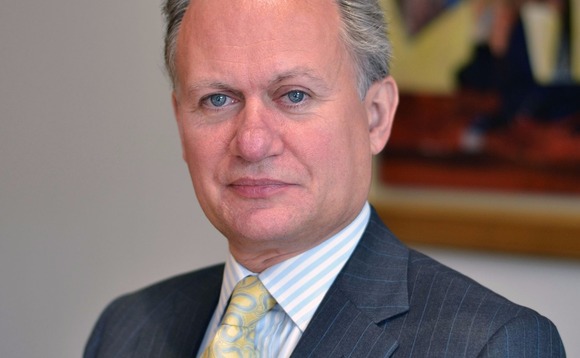The current energy crisis has had "nothing to do with Putin", said Richard Buxton, head of strategy, UK alpha for Jupiter Asset Management.
In a panel titled ‘What are the opportunities in the UK market' at the Square Mile Investment Conference today (27 September), Buxton argued that the "ESG net zero zeitgeist" was largely responsible for the energy crisis, calling Putin's actions "just the icing on the cake".
Buxton stated: "We have been sleepwalking into an energy crisis for the last six or seven years.
"Most of this decade is going to be high oil and gas prices because there is no supply response to the crisis."
He suggested that some fossil fuels, such as natural gas, are "quite clean", and we should therefore "love oil and gas companies" as they prevent further investment in coal. "We have got to have a major rethink and say actually gas is great," he added.
Buxton argued that since it took 30 years to reach 15% of energy production being from renewables worldwide, we can "dream on" about decarbonising before 2050.
Asset managers struggle to evidence ESG considerations when taking positions
Outside of the energy crisis, fellow panellist Alex Wright, portfolio manager at Fidelity, discussed the UK market more broadly, and said that in the ten years he has been managing the firm's special values trust, every year has seen outflows from the UK.
However, he argued that as "75% of earnings in the UK are international earnings, only 25% are from the UK" and that means that even if the UK economy does underperform in the future "the whole market is actually cheap".
However, he was keen to note that while he sees the UK market as cheap, "that doesn't mean every company in the UK is cheap," and therefore the stock picking process was not as simple as "buying good companies".
He pointed to the five biggest UK funds, which were all growth funds with price-to-earnings ratios in excess of the market, meaning that they effectively "replicate the same exposure you get by a global, US or NASDAQ focused fund".
Wright stated that his value style funds have about 100 holdings, and that "some of those are great, some of those are mediocre, some of them are not great companies, but actually, what they all are is very good value".
He noted that the PE ratio of the fund was closer to x8.5, so "the long term growth of the fund is probably lower than my peers, but the valuation is much lower".
He concluded: "In today's higher interest rate environment, high discount rate environment, I think that's a good place to be rather than just sticking to only investing in great companies, generally at high prices, which has worked for the last 10 years."
Consistent outflows see Fitch downgrade Jupiter to 'Negative' rating
When asked which asset managers in the UK were considered as worthwhile holdings in a portfolio, Wright said that his fund only owned Premier Miton, which it holds 10% of as one of its largest holdings.
He said he saw more value in more boutique asset managers with the potential to grow, rather than larger asset managers.
This was "specifically, because we see so much value in banks and insurance" that it is quite heavily weighted towards them, at about 25% of the portfolio.
Benji Dawes, fund manager at Premier Miton, said his fund did not own any asset managers.
He explained: "We look at some of their big funds and think, crikey, they are perhaps a little bit on the larger side and beyond capacity, so it is more structural stuff than it is concerns about the industry.
"If I was to take a position it would probably be the small boutique asset managers."





